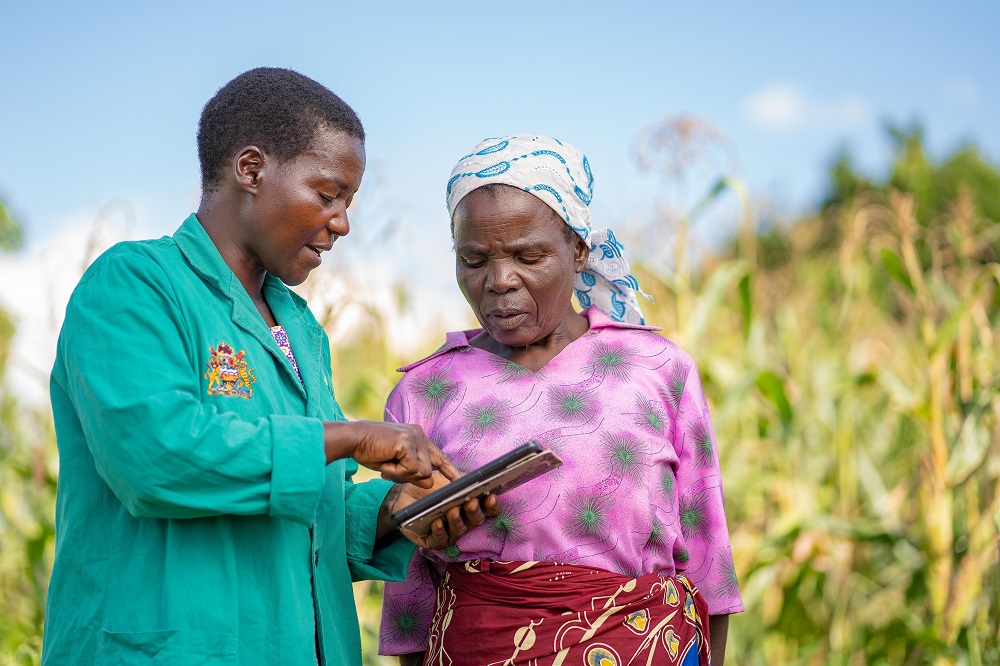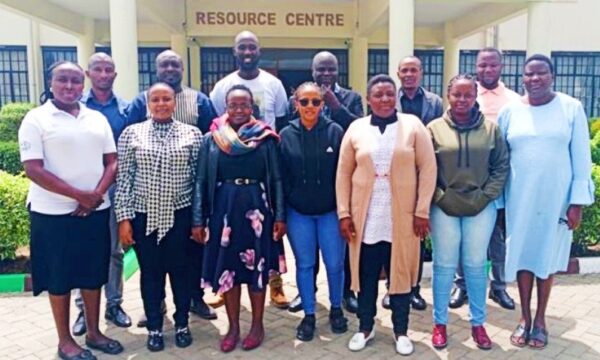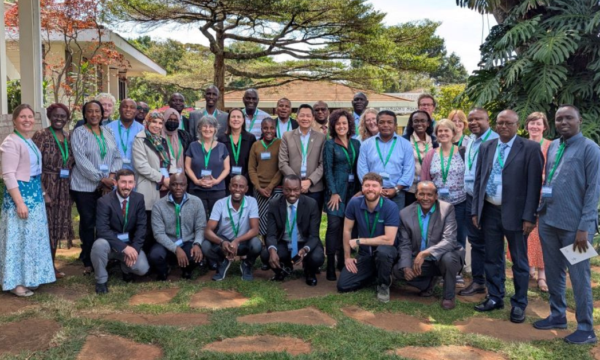
The challenges of using digital tools as part of extension and advisory services to help empower small and family farmers amid the COVID-19 pandemic have come under the microscope in a joint webinar hosted by the Food and Agriculture Organization of the United Nations (FAO) and Agrilink.
CABI’s Dr Monica Kansiime, who is based at CABI’s Africa Centre in Nairobi, Kenya, participated in the event by taking part in a panel discussion looking at the role of advisory systems and related policies in maximizing digital dividends and minimizing divides in helping farmers boost their yields and profits in testing times.
In particular, Dr Kansiime drew upon research findings from her paper ‘Challenges and capacity gaps in smallholder access to digital extension and advisory services in Kenya and Uganda,’ published in Frontiers of Agricultural Science and Engineering, which highlighted how 78 percent of farmers accessed extension and advisory services mainly from radio and that low digital literacy and the high cost of the internet were key barriers to digital extension and advisory service use.
The webinar, held on Thursday this week (11 November, 2021), aimed to explore the ‘opportunities, challenges and potential pitfalls as well as the issue of smallholder farmer empowerment associated with the current trends in the digital delivery of extension and advisory services to farmers.’
It drew upon the e-workshop’s rich diversity of perspectives and expertise of colleagues working with agricultural extension and advisory services in both Europe and the Global South, to discuss policy recommendations and a way forward to strengthen smallholder farmers’ access to digital extension and advisory services and to maximise digital dividends while minimising the divide.
Most recently, the COVID-19 pandemic has challenged agricultural extension and advisory services around the world to rapidly innovate and adopt remote and digital tools to allow them to continue supporting farmers whilst complying with the necessary COVID-19 control measures.
Dr Kansiime said, “Smallholder farmers face a myriad of challenges and capacity gaps in access to digital extension and advisory services. Our own research, in respect of smallholder farmers in Kenya and Uganda, for example, has shown that the ownership of digital devices, participation in post-production activities, and access to extension are key drivers of digital extension and advisory service use.
“Our recommendations for policy and practice include farmer profiling to understand the different needs of smallholders to provide targeted information and advisory services as well as the integration of digital communication within multimode advisory services that use different but linked communication channels for inclusive scaling of extension activities.”
A discussion paper associated with the webinar suggests that ‘both the advisory and farming communities need to be mobilised and empowered to take ownership of digital tools and to actively engage with them.’
The document goes onto to argue that ‘this may involve combining available technologies with social and organisational innovations, new infrastructures and an enabling environment of favourable policies, investment, regulations and improvements in capacity.’
The future role of extension and advisory services, it further contends, should include ‘facilitating and supporting farmers to re-orientate themselves in the digital landscape.’
Additional information
Main image: A farmer is helped manage her crops more efficiently with digital tools used by an extension worker in Kenya (Credit: CABI).
Relevant paper
Monica K. Kansiime, Idah Mugambi, Harrison Rware, Christine Alokit, Caroline Aliamo, Feng Zhang, Jakob Latzko, Puyun Yang, Daniel Karanja, Dannie Romney. Challenges and capacity gaps in smallholder access to digital extension and advisory services in Kenya and Uganda. Front. Agr. Sci. Eng., https://doi.org/10.15302/J-FASE-2021423
1 Comment
Leave a Reply
Related News & Blogs
Lessons in AI Governance from the GAIA Project
Generative AI is starting to reshape how agricultural advice is produced, shared, and used — but the shift comes with both opportunities and challenges. For smallholder farmers, agriculture advisory chatbots and AI-based diagnostic tools could offer fa…
14 May 2025





Very appreciable efforts by Dr. Monica Kansiime. Keep it up.